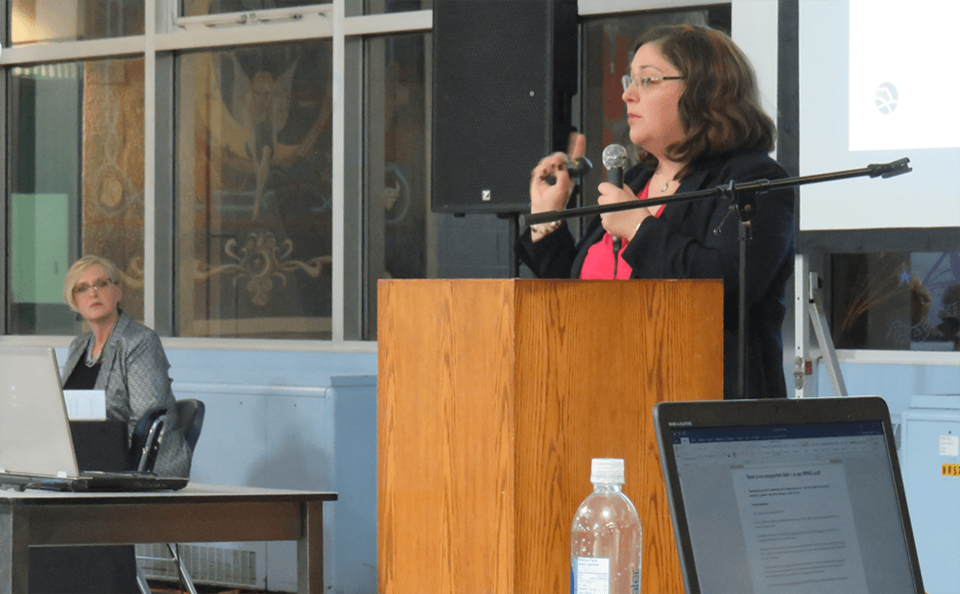KPMG's own report cites limits imposed by Town of Pelham
BY VOICE STAFF
Last October, after months of residential and Regional questions going unanswered, Pelham Town Council partially bowed to pressure said that it would engage a third-party audit of a particularly problematic, multi-million-dollar, 3.3 acre East Fonthill land transaction.
“To make the audit completely independent, Pelham Town Council has retained KPMG Canada to undertake an independent, third-party audit of all transactions and documents related to the parkland over-dedication and the development charge credit agreement,” said Mayor Dave Augustyn at the time.
Yet KPMG’s own documents, released publicly shortly before Christmas, indicate that what was carried out was not, in fact, an audit.
“We have relied upon the completeness, accuracy and fair presentation of all the information obtained,” KPMG states.
“Our calculations and analysis are conditional upon the completeness, accuracy and fair presentation of such Information. KPMG has not audited or otherwise independently verified the accuracy or fair presentation of any of the Information.”
Further, the firm says that its comments “are not intended, nor should they be interpreted to be, legal advice or opinion.”
In its report, KPMG notes two essential assumptions.
The first is that, “all relevant email communications of representatives of the Town regarding the EFDP [East Fonthill Development Project] were provided to KPMG for review.”
The second reads, “financial information provided by representatives of the Town was based on the use of complete and accurate information, including information from the Financial Statements, and underlying financial records.”
Accounting experts consulted by the Voice caution that not only does KPMG directly state that the firm didn’t conduct an audit, but that the firm also states it was reliant on the Town being entirely forthcoming.
“The reports provide a summary of information provided by Town staff, council and others, but they do not provide opinions, verification or approval of Town council oversight, or approval of the Town's actions, or if they were correct or not,” says one expert.
In other words, KPMG has repeated to the public what it has been told by the Town, without making any attempt to verify the truthfulness of such statements. This is the opposite of an audit, much less a “forensic” audit.
KPMG further states that its staff did not interview or ask questions of any former employees, or any current or former Council members. They spoke only with upper level management, the Town’s lawyers, and representatives of the Allen Group and their lawyers.
In news releases, the Town continues to inaccurately refer to KPMG’s work as an audit. However, as is made explicit by the firm in its report, KPMG was given a restricted, narrow scope of work, namely a single land transaction in East Fonthill, and the credit-swap scheme used to pay for it.
Last autumn the Town asserted that residents could send questions directly to KPMG, arguing that this made the inquiry “independent.” However, the Town set the inquiry’s scope, and it was Town staff who controlled how much, or how little information was provided to KPMG staff to answer residents’ questions.
In sum, KPMG appears to have collated information as provided by Town staff and not drawn independent conclusions regarding key concerns, including whether it believes that the Town paid a justifiable price for lands acquired from The Allen Group, or whether the means of compensating the Allen Group were appropriate.
In fact, the report is repeatedly non-committal as to whether the Town complied with applicable legislation, providing limited or no comment on the legality of the municipality’s actions.
“Unfortunately, the restrictions have led to a host of questions that remain unanswered,” an accounting expert says.
“And now with the Town reversing its decision to hold a second meeting, where residents could ask questions of KPMG, the Mayor, Councillors and senior Town staff, it appears the controversy surrounding East Fonthill and the new community centre will continue to cause issues for the Town with the Region, taxpayers, and regulators, for some time to come.”



